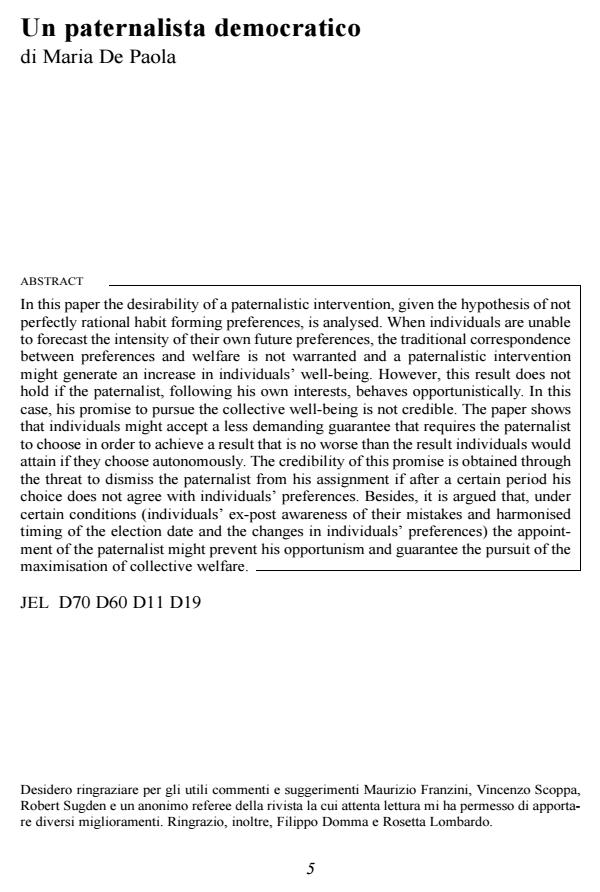Un paternalista democratico
Journal title ECONOMIA PUBBLICA
Author/s Maria De Paola
Publishing Year 2001 Issue 2001/4
Language Italian Pages 29 P. File size 116 KB
DOI
DOI is like a bar code for intellectual property: to have more infomation
click here
Below, you can see the article first page
If you want to buy this article in PDF format, you can do it, following the instructions to buy download credits

FrancoAngeli is member of Publishers International Linking Association, Inc (PILA), a not-for-profit association which run the CrossRef service enabling links to and from online scholarly content.
In this paper the desirability of a paternalistic intervention, given the hypothesis of not perfectly rational habit forming preferences, is analysed. When individuals are unable to forecast the intensity of their own future preferences, the traditional correspondence between preferences and welfare is not warranted and a paternalistic intervention might generate an increase in individuals’ well-being. However, this result does not hold if the paternalist, following his own interests, behaves opportunistically. In this case, his promise to pursue the collective well-being is not credible. The paper shows that individuals might accept a less demanding guarantee that requires the paternalist to choose in order to achieve a result that is no worse than the result individuals would attain if they choose autonomously. The credibility of this promise is obtained through the threat to dismiss the paternalist from his assignment if after a certain period his choice does not agree with individuals’ preferences. Besides, it is argued that, under certain conditions (individuals’ ex-post awareness of their mistakes and harmonised timing of the election date and the changes in individuals’ preferences) the appointment of the paternalist might prevent his opportunism and guarantee the pursuit of the maximisation of collective welfare. JEL D70 D60 D11 D19
Maria De Paola, Un paternalista democratico in "ECONOMIA PUBBLICA " 4/2001, pp , DOI: